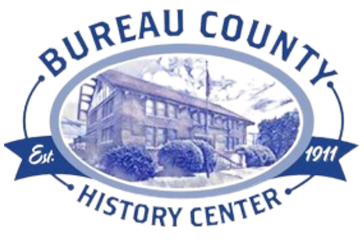Transcript
Hello, I’m Alfred Norris, but relatives and close associates knew me as Fred.
I was born in 1863 in the LaMoille area and grew up on a farm there.
I didn’t care much for those dinner parties, but I knew Gracie did, so I put up with them for her. I didn’t care to dress up, and my appearance was usually very casual. One accessory I always included was a cigar. You rarely saw me without one.
My job at these dinner parties was to pass out chocolates after the meal. My favorite was Allegretti chocolates, which I bought by the case. I also had the task of passing out cigars to the men. I’d open the box and start offering them around, and if there was somebody in the crowd that I didn’t approve of, I’d pass right by them. It used to embarrass the heck out of my cousin, Don, when I did that.
As for me, I preferred a good business deal over a social get-together. I liked to make money.
During the Depression in the 1930’s, I bought stock in the Armor Meat Packing Company for little or nothing, then sold it later and made $50,000. That would be nearly a million dollars in today’s money.
I served as Chairman of the Board of Directors for Citizen’s First National Bank for many years. I admired C.D. Tedrow (Tee-dro), who was the President. He was a tough businessman and knew how to run a bank well. Together, we did a good job.
I didn’t really want to move into town, but Gracie wanted to be near her mother, so I agreed to leave the farm and come to Princeton. I liked my mother-in-law. However, I didn’t care much for Sam Clark, my father-in-law. We lived under the same roof for almost 25 years. Enough to sorely try a man’s patience.
I was a person of habit and routine, and each morning, I went downtown to the post office to get the mail. I also read the Wall Street Journal every day, and my favorite newspaper was the Chicago Tribune. I was very interested in World War II and listened to the radio to get the latest news. It didn’t really bother me too much when I heard that a British ship was torpedoed or London was being bombed. I don’t care much for the British.
My daily exercise was chopping wood. I had a large stack of wood on the west side of the house, and every day, I wielded the ax out there, cutting and splitting the logs into suitable pieces of wood for our fireplace.
One thing that surprised people is that I enjoyed children. Duncan and Katherine Bryant were a couple of kids that lived next door to us, and I had great affection for them.
In the 1920’s, Duncan was still just a kid, and he was diagnosed with diabetes. At that time, doctors thought exercise would aggravate the disease. Duncan’s doctor was Dr. Peter H. Poppens and his office was on the second floor of a building downtown. I was concerned about the child, so I went to the doctor with his mother and carried him piggy-back style up the stairs so he wouldn’t exert himself.
When Duncan was a teenager, I taught him and his sister how to drive a car. I also bought them cars since their family didn’t own one.
I enjoyed cars, and I owned two, even though Gracie didn’t drive. One was an open touring car and the other was a closed car. Whenever I took Gracie somewhere, I had to drive the closed car. That’s what she preferred. One of the first cars I owned when I moved to Princeton was a National—It was an open car, of course. It was a beautiful seven passenger vehicle with jump seats and leather upholstery. It had an air pump. If the car started to sputter, you had to stop and pump it up.
Another automobile I had was an early Cadillac. I kept that car for years and drove and drove it. Around 1930, I invited the Bryant kids and their mother to come out on a drive with me and watch as the speedometer turned over 100,000 miles. That was quite an occasion. Later, I gave the car to the American Legion and a mechanic turned it into a parade vehicle for them.
I died on May 31, 1944, at the age of 81.
I wasn’t in favor of leaving our home to the Historical Society, but Gracie was the one who owned it, and she wanted to do that. In my will, I followed my father-in-law’s example and gave $10,000 to the Matson Public Library.
Over the years, Gracie and I gave money to several young people in town so they could get a college education.
Thank you for coming and have a prosperous day!
Oakland Speaks
Speaker Information
Michael Lee was raised in rural Illinois – the “Land of Lincoln” – and grew up on his family’s Warren County Sesquicentennial Farm, which was first purchased by his Irish immigrant great-grandfather in 1869. Long interested in regional history, he is the author of Passages, a narrative history of his family. A retired educator, he has lived in Princeton since 2019 and continues teaching as a docent at Lovejoy Homestead. With a love for vintage architecture and the arts, he serves on the Princeton Historical Preservation Commission, the Prairie Arts Council, and the Festival 56 Board, all while continuing to pursue a thirty-year enthusiasm for theater by acting and directing both locally and professionally.
Membership
Bureau County Historical Society, membership is open to everyone. Download here and print the above document or call us at 815.875.2184 and join today!

